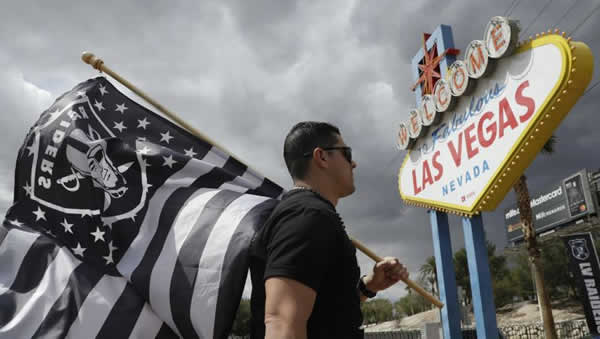The Supreme Court of the United States (SCOTUS) recently lifted the federal ban on sports betting outside of Nevada. The now precedent case, New Jersey vs. NCAA, was ruled in favor of New Jersey by a decision of 7-2. The announcement came May 14th, 2018 and has since ruffled a few feathers in the professional and amateur sporting leagues. The decision is now opening the door for many states to allow legal sports betting. Before the decision was announced, Nevada was the only state that could legally offer single-game sports betting.
Nevada Sports Betting
Nevada has long been regarded as the gambling city, but sport fanatics would also refer to it as the sports betting city since they were one of the four states with some form of legal sports betting. Nevada, Delaware, Oregon, and Montana were all exempt from the Professional and Amateur Sports Protection Act (PASPA) because they already had some form of sports wagering in place before the PASPA act took effect in 1992. Nevada has been in the gambling business since 1931 when the town first legalized gambling in an attempt to recover from the great depression. Today gambling at Nevada’s domestic casinos and sportsbooks account for over 11 billion in yearly revenue.
Will Congress Regulate Sports Betting Federally?
That is the question that is up in the air. Yes, Congress can regulate sports betting, they also still have the option to ban sports betting federally. As most Americans know, federal regulations outweigh state regulations, so if Congress decided to ban sports betting, operations across all states would have to cease or risk punishment. The professional and amateur sporting leagues are all lobbying for federal regulation with the imposition of an integrity fee. They are seeking for a 1% integrity fee to protect the innocence of the game and combat point shaving and game throwing schemes. While they are doing their best to gain recognition for their integrity fee most states are turning a blind eye after the SCOTUS announced its stance on PASPA. While Congress has the option to regulate sports betting across all the states it seems unlikely since they don’t regulate casinos federally. Until there is a federal regulation handed down states are free to legalize and accept sport bets under their own regulations.
32 States Are Geared To Legalize Sports Betting
When the NCAA vs. New Jersey case was sent to the SCOTUS many states started preparing for what might happen in New Jersey won the case. As many as 32 states have made some effort to draw up legislation to allow sports betting if the SCOTUS ruled in New Jersey’s favor. Now that the decision is out and PASPA is deemed unconstitutional several states have already passed state legislation to allow sports betting. The states that already passed legislation will be able to start accepting sporting bets as soon as they get their systems in place.
How Sports Betting Can Help Struggling States
Many states see legalized sports betting as a revenue stream for other important community needs such as education, health, or infrastructure assistance. In Nevada, gambling revenue has shaped the desert town of Las Vegas into a gamers paradise with luxuries usually only experienced in exotic worldly places. Sports have also played an interquel part of stimulating the local economy. Las Vegas is known as the boxing capital and all major boxing events are still held in Vegas to this day. In 2020, Vegas will be receiving their first professional NFL team the Vegas Raiders (formally Oakland Raiders). Some people are speculating that the PASPA removal will hurt Vegas sportsbooks in the long run.
Vegas Responds To The Decision
Many of Nevada’s congressional lawmakers responded to the news coming from Capitol Hill Monday as a positive advancement for American sports betting laws. Senator Masto, and Rep. Kihuen both stated that they believe Nevada can benefit from this decision and maintain its leadership in the industry by helping other states draft regulations and providing insider information on how to protect their players. Other lawmakers also said positive things about the decision.
How Will This Decision Affect Online Sports Betting?
The SCOTUS decision to reverse the PASPA act will not have an effect on USA online sportsbooks. As it stands now US-based sportsbooks are not allowed to offer sports betting via the internet because of the Federal Wire Act. The Federal wire act is an old gambling law that was used to combat illegal mob activities. In 2011 the DOJ’s Formal Opinion of the Federal Wire Act that stated that the federal wire act only extended to online sports betting and not to online casino gambling. Until the Federal wire act is repealed, there will be no US-based online sports betting. Currently, USA residents are free to place bets with any offshore online sportsbook they choose. Online sportsbooks based overseas are legal for US residents to play and wager on and often offer some bonus and promotional deals that domestic sports betting shops can’t touch. However, you choose to play, make sure you stay legal to avoid any garnishments or punishments that could arise from breaking local regulations.

